| Su | Mo | Tu | We | Th | Fr | Sa |
|---|---|---|---|---|---|---|
| Su | Mo | Tu | We | Th | Fr | Sa |
|---|---|---|---|---|---|---|
-
 Mar 5, 2021Times of India
Mar 5, 2021Times of IndiaIT major Cognizant is rewarding top performers over and above the bonus amount. The company will shell out up to 125% of the target bonuses – a significant increase from the comparable performance-linked bonus paid at around 95% in the previous year.
-
 Mar 3, 2021ETHRWorld.com
Mar 3, 2021ETHRWorld.comThe report said the Asia Pacific and the Middle East companies are at least as bullish on AI and analytics as their global counterparts are, if not slightly more so.
-
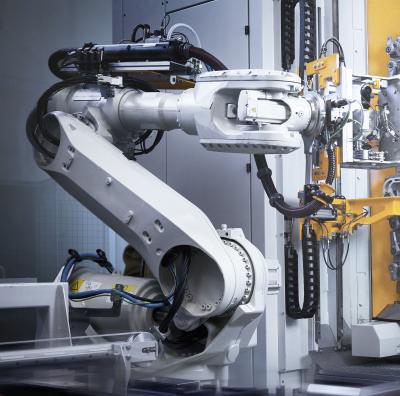 Mar 3, 2021ETCIO.com
Mar 3, 2021ETCIO.comIoT’s true potential lies in integrating IoT data with the company’s present processes and data streams to provide steady monitoring and improvement opportunities.
-
 Mar 1, 2021New Business Magazine
Mar 1, 2021New Business MagazineWith the rise of new machines, new generations of talent and new business models based on insight and intelligence, the rules of global competition had already started to change. Now, these tectonic shifts are being further catalyzed and accelerated by the global pandemic.
-
 Mar 1, 2021Finance Derivative
Mar 1, 2021Finance DerivativeThere has long been a paradox at the heart of the financial sector – customer loyalty remains high despite overall trust in the banking system being very low.
-
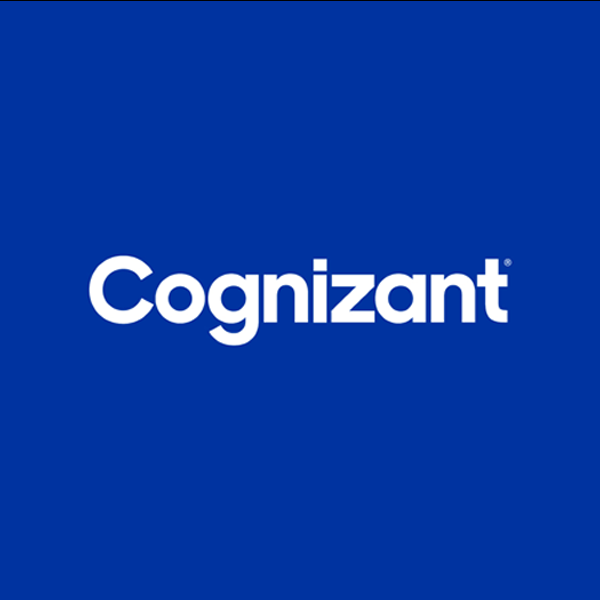 Feb 26, 2021Hindustan Times
Feb 26, 2021Hindustan TimesThe government first-grade colleges in Karnataka will be provided with 12,500 debonded desktop computers as part of the Help Educate.
-
 Feb 26, 2021Retail Insight Network
Feb 26, 2021Retail Insight NetworkRetail Insight Network spoke with Cognizant head of products and resources Rohit Gupta to find out how the demise of these large retail empires will affect the rest of the retail industry and what lessons can be learned.
-
 Feb 25, 2021ESG Today
Feb 25, 2021ESG TodayProfessional services company Cognizant announced today a series of new corporate social responsibility initiatives, including a commitment of $250 million towards efforts to advance economic mobility, educational opportunity, diversity and inclusion, and health and well-being in communities around the world.
-
 Feb 25, 2021The Economic Times
Feb 25, 2021The Economic TimesBeginning in 2021, Cognizant said that it would expand grant-making in the US and India to new global markets where the company is growing its operations, including Australia, Canada, Germany, and the UK.
-
 Feb 24, 2021Mint
Feb 24, 2021MintAs a retention strategy, Cognizant has enhanced its leave policy by increasing the number of annual paid leaves and the company will provide an option for employees to work from home or office, or choose a combination of the two, subject to client approvals and security clearances.
-
 Feb 22, 2021IT Supply Chain
Feb 22, 2021IT Supply ChainBy continually assuring the currency, accuracy, and relevancy of business-critical data and analytics models, organisations can better anticipate and solve whatever market and environmental challenges they may encounter. However, perishable data and analytics models make it much harder to predict and respond to unexpected events.
-
 Feb 19, 2021City AM
Feb 19, 2021City AMNegative news about the new post-Brexit challenges for the UK’s financial services currently dominates headlines. The market structure is still far from settled ahead of upcoming talks between the UK and the EU on equivalence.
-
 Feb 18, 2021Financial Express
Feb 18, 2021Financial ExpressCognizant has stepped up its hiring efforts for both freshers and lateral hires in the country and expect the number of new recruits in the March quarter to be “more than ever,” Cognizant India Chairman and managing Director Rajesh Nambiar said.
-
 Feb 18, 2021The Economic Times
Feb 18, 2021The Economic TimesCognizant India hired more than 17,000 fresh graduates from campuses in 2020 and expects to hire over 23,000 fresh graduates in 2021—indicating a 35% increase year-on-year.
-
 Feb 15, 2021ASEAN Business
Feb 15, 2021ASEAN BusinessThe insurance industry is on the cusp of having its entire lifecycle reimagined as the shift to digital accelerates. From product development and underwriting, customer engagement and self-service, to claims and fraud detection, digital transformation is impacting every step in the insurance value chain.
-
 Feb 15, 2021The Economic Times
Feb 15, 2021The Economic TimesThe B2B2C, or business-to-business-to-consumer, model has seen a huge jump in demand after the COVID-19 outbreak disrupted operations of businesses globally.
-
 Feb 14, 2021The Economic Times
Feb 14, 2021The Economic Times“We anticipate a significant revenue acceleration in 2021 following our midteens bookings growth this year. Right now, we are 100% focused on recruiting talent,” says Cognizat’s Rajesh Nambiar.
-
 Feb 12, 2021Insider Engage
Feb 12, 2021Insider Engage“Looking to the longer term, we may see a shift in commercial insurance towards a greater appetite for self-insurance, with re-insurance type contracts, as businesses use IoT to manage their own risks better,” says Cognizant’s David Sexton.
-
 Feb 12, 2021Financial IT
Feb 12, 2021Financial ITAs 2021 unfolds, the topic of tax is set to dominate headlines. Tax to recoup the costs of Covid, tax on large, high profit companies, and new areas of tax to generate revenue and influence changes in society, such as environmental social and governance (ESG).
-
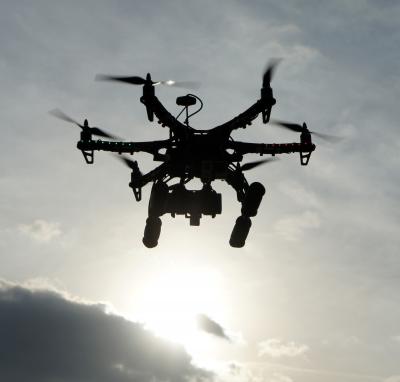 Feb 11, 2021Commercial Drone Professional
Feb 11, 2021Commercial Drone ProfessionalIn the past couple of years, we have seen several announcements from technology companies around their involvement in the future of transport.
-
 Feb 11, 2021CNBC-TV18
Feb 11, 2021CNBC-TV18Here are the five key actions that will help businesses augment human work with digital technologies.
-
 Feb 11, 2021Singapore Business Review
Feb 11, 2021Singapore Business ReviewSingapore’s 2021 budget is due to be unveiled in less than a month, and all eyes are on the measures to be announced.
-
 Feb 10, 2021HFS Research
Feb 10, 2021HFS ResearchThe major healthcare industry innovations focus on reducing the cost of care (thereby improving the supply crunch) and shifting the mindset from illness to wellness (to manage rising demand). The pandemic shock has exacerbated these challenges.
-
 Feb 10, 2021IBS Intelligence
Feb 10, 2021IBS IntelligenceTrading activity and dividend arbitrage schemes are seeing increased scrutiny from authorities following the Cum-ex tax scandal. Sunniva Kolostyak speaks to Daniel Carpenter, Head of Regulation at Meritsoft, a Cognizant company, about what institutions can do to ensure compliance and in turn, build trust.
-
 Feb 10, 2021Axios
Feb 10, 2021AxiosAs both vaccinations and acquired immunity spread, life will likely settle into a new normal that will resemble pre-COVID-19 days — with some major twists.
-
 Feb 9, 2021Golf Channel
Feb 9, 2021Golf ChannelCognizant announced on Tuesday that it has partnered with both the PGA Tour and LPGA.
-
 Feb 9, 2021Forbes
Feb 9, 2021ForbesOn the heels of Cognizant being named Aston Martin’s title partner for the luxury British marque’s return to Grand Prix racing after a six-decade absence from the Formula 1 grid, the IT consulting giant continues to rev up their sports marketing initiatives.
-
 Feb 9, 2021Golfweek
Feb 9, 2021GolfweekCognizant’s commitment to keep the Founders Cup not only alive but thriving as Whan prepares to step down strikes a deeply personal chord for the commissioner.
-
 Feb 8, 2021Techonomy
Feb 8, 2021TechonomyIf you were about to get on a boat or an airplane, and someone told you there was a 70% chance your journey was going to turn out very, very badly, would you still embark? Probably not.
-
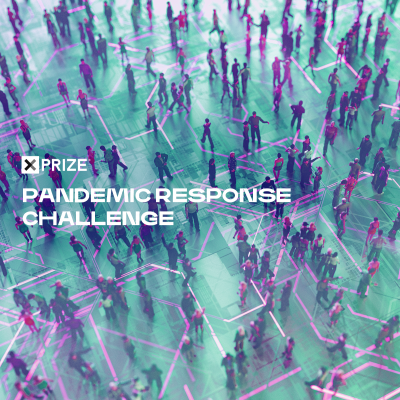 Feb 5, 2021datanami
Feb 5, 2021datanamiHalf a million dollars are up for grabs in the latest XPRIZE competition, which pits dozens of data science teams
-
 Feb 4, 2021CIO Dive
Feb 4, 2021CIO DiveCompanies take 61 days on average to fill a tech role in high demand, compared to 42 days for a non-tech role, according to the iCIMS 2021 Workforce report, released Wednesday. The study consulted 500 U.S.-based HR professionals between November and December of 2020.
-
 Feb 4, 2021AI Business
Feb 4, 2021AI BusinessCOVID-19 turned our professional and personal lives upside down. It also forced governments, scientists, and health-care providers around the world to accelerate the development of artificial intelligence (AI).
-
 Feb 3, 2021NBC News
Feb 3, 2021NBC NewsThe elevation Tuesday of Andy Jassy to Amazon’s future CEO was the latest evidence that the forecast for Big Tech is increasingly cloudy. “It’s a bit of a crowning glory for the cloud,” said Cognizant’s Ben Pring.
-
 Feb 2, 2021Money FM 89.3
Feb 2, 2021Money FM 89.3A recent study by Cognizant’s ‘Centre for the Future of Work’ found that Singapore companies felt most impacted by COVID-19 throughout the region.
-
 Jan 25, 2021Financial Express
Jan 25, 2021Financial ExpressQuick and accelerated digital adoption by Indian firms has helped them grow faster than their Asian and Western peers.
-
 Jan 23, 2021Axios
Jan 23, 2021AxiosEven "jobs of the future" have been derailed by the intensified pandemic, but positions in environmental services are still growing strong.
-
 Jan 14, 2021ITProPortal
Jan 14, 2021ITProPortalArtificial intelligence (AI) played a crucial role in the survival of many organizations during the Covid-19 pandemic, and its influence is only going to grow with time. Recognising the opportunity, businesses in the UK are at the forefront of adoption, compared to elsewhere in Europe.
-
 Jan 13, 2021Business Leader
Jan 13, 2021Business LeaderThe UK is leading the way in Europe when it comes to the adoption of AI, with a fifth (18%) of companies based here already at the most advanced stage of AI maturity, the highest proportion in Europe, ahead of Germany (16%) and France (12%).
-
 Jan 13, 2021Times of India
Jan 13, 2021Times of IndiaWhile Asian businesses have been largely nimble in responding to the pandemic, India Inc braved the COVID-19 crisis much better than countries worldwide, and is also most bullish about embracing digital tools.
-
 Jan 13, 2021The Australian Business Review
Jan 13, 2021The Australian Business ReviewThe era of doing everything ‘at the touch of a button’ is coming to an end in 2020 smart speakers have changed how Australians work, play and relax.
-
 Jan 12, 2021Australian Financial Review
Jan 12, 2021Australian Financial ReviewMultibillion-dollar US information technology services provider Cognizant has bought private equity-backed local tech transformation consultancy Servian in a deal that will substantially increase the size of its cloud and data team.
-
 Jan 12, 2021Economic Times
Jan 12, 2021Economic TimesTechnology Solutions on Monday announced it is buying out Servian and Linium — taking the total number of such acquisitions to 11 over the past 12 months.
-
 Jan 12, 2021Mint
Jan 12, 2021MintThe top three forces that will have a strong impact on work in India by 2023 are hyper-connectivity (49%), concerns about security and privacy (46%), and process automation (44%).
-
 Jan 12, 2021The Economic Times
Jan 12, 2021The Economic TimesOnly 36% of companies in India experienced slightly negative to a very negative impact on their business performance in 2020, as opposed to the regional average of 44%, making Indian companies more resilient through the pandemic, a study by Cognizant revealed on Tuesday.
-
 Jan 10, 2021ET Now
Jan 10, 2021ET NowThe pandemic has highlighted starkly that companies that were further along the path towards digitalisation have fared better weathering the coronavirus storm. The acceptance of Big Data as an established business concept, coupled with the emergence of useful Internet of Things (IoT) technologies, has the potential to significantly change the way businesses operate.
-
 Jan 9, 2021The Wall Street Journal
Jan 9, 2021The Wall Street JournalA performance review is an opportunity to showcase your contributions to your employer. In most cases, these meetings are held annually, but some companies hold more frequent, informal check-ins, often quarterly.
-
Jan 8, 2021Forbes
This week marks a significant milestone in Aston Martin’s return to Formula One after a 60-year absence. Aston Martin officially brought on the New Jersey-based IT firm Cognizant as the Formula 1 team’s title partner.
-
 Jan 7, 2021The Point, NPR
Jan 7, 2021The Point, NPROn The Point, we continue our lecture series "Friends of the Marine Biological Laboratory’s Falmouth Forum." This month's topic is "The Future of Education, Skills, and Work: Staying Relevant in a World Changing Faster Than Ever." Our guest is Ben Pring, I-T futurist, and co-founder of Cognizant’s Center for the Future of Work.
-
 Jan 7, 2021Sports Business Journal
Jan 7, 2021Sports Business JournalThe newly rebranded Aston Martin F1 Team this morning will reveal its first title partner in American digital services company Cognizant in a deal that was set up in rapid fashion and is part of a larger B2B partnership.
-
Jan 7, 2021ESPN
The recently rebranded Aston Martin Formula One team has secured U.S.-based IT brand, Cognizant, as its title sponsor.
-
 Jan 7, 2021Reuters
Jan 7, 2021ReutersThe Aston Martin Formula One team announced a new title sponsorship with U.S.-based IT services giant Cognizant on Thursday that they said will help them punch higher and harder this season.
-
 Jan 6, 2021ITProPortal
Jan 6, 2021ITProPortalFrom how firms manage worker relationships, to how they build and communicate their services, COVID-19 has changed everything.
-
 Jan 5, 2021Stockhead
Jan 5, 2021StockheadTwo industries that endured a positive 2020 and could be set for a lucrative 2021 are AI (artificial intelligence) and cybersecurity.
-
 Jan 5, 2021IEEE Spectrum
Jan 5, 2021IEEE SpectrumA new XPRIZE challenges simulators to go from forecasting case numbers to recommending policy
-
 Dec 29, 2020The Stack
Dec 29, 2020The StackFollowing a year of unforeseeable upheaval for the media and entertainment industry, 2021 is likely to see further changes in consumer behaviour and content creation. Here, David Ingham, Client Partner, Media and Entertainment at Cognizant, picks five key changes he expects to see across the entertainment industry in 2021.
-
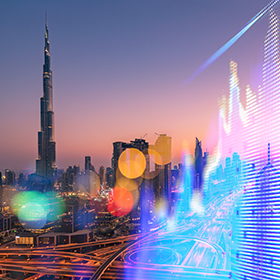 Dec 28, 2020Global Custodian
Dec 28, 2020Global Custodian2021 will be the year when ESG regulations start to take effect, with the Sustainable Finance Disclosure Regulation (SFDR) commencing in the EU, requiring asset managers to categorise and disclose on their funds according to climate and wider environmental criteria.
-
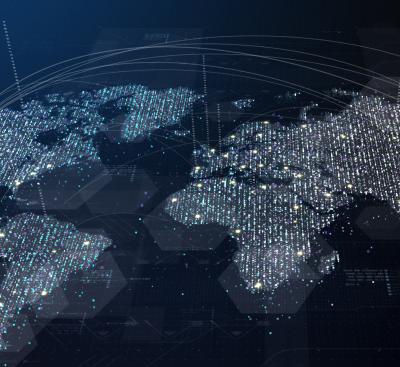 Dec 24, 2020Telecoms
Dec 24, 2020TelecomsThe rollout of 5G is gathering momentum, with almost one third of the UK now able to access the new network. Telecommunications companies are at a crossroads in terms of where to go next, with various considerations and options for their digital journeys ahead.
-
 Dec 24, 2020Personnel Today
Dec 24, 2020Personnel TodayEarlier this year, digital solutions firm Cognizant revealed 21 HR roles that are expected to emerge over the next decade. Caroline Leroy outlines the ones employers are most likely to begin recruiting for in 2021.
-
 Dec 21, 2020Device-Level Security: How to Balance Security With the Cost and Complexity of Manufacturing DevicesNetworking+
Dec 21, 2020Device-Level Security: How to Balance Security With the Cost and Complexity of Manufacturing DevicesNetworking+Increasingly, smart devices are making their way into our homes. These may be fridges, thermometers, cameras or speakers. As a result, a staggering 7.0 billion IoT devices are expected to be in the world by the end of 2020.
-
 Dec 21, 2020Reproduced with permission from Bloomberg Tax, Copyright 2020
Dec 21, 2020Reproduced with permission from Bloomberg Tax, Copyright 2020Daniel Carpenter of Meritsoft (a Cognizant company), looks at the operational challenges facing financial institutions, as Spain approves a bill introducing a financial transactions tax and other countries consider similar measures
-
 Dec 20, 2020Economic Times
Dec 20, 2020Economic TimesAs digital transformations happened and the bottom of the pyramid workforce reduced, the number of people managing this workforce has reduced over the years. IF you are a middle manager in an industry that is radically changing the way it delivers products or services, you have a reason to worry.
-
 Dec 9, 2020Economic Times
Dec 9, 2020Economic TimesNewly appointed India managing director Rajesh Nambiar outlines the company’s plans for 2021.
-
 Dec 9, 2020Mint
Dec 9, 2020MintNambiar, who completes a month with the Nasdaq-listed firm on Wednesday, has his task cut out to build the India business and help Cognizant return to bellwether status.
-
 Dec 9, 2020Times of India
Dec 9, 2020Times of IndiaRajesh Nambiar took charge at the corner office at Cognizant India a month ago from software firm Ciena India. An old IBM executive, he talks of his mandate and the road ahead for Cognizant.
-
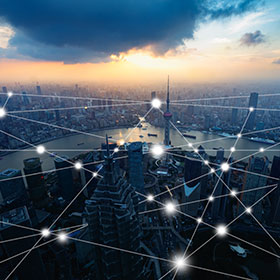 Dec 8, 2020Open Access Government
Dec 8, 2020Open Access GovernmentRohit Gupta, Head of Products and Resources, Europe, Cognizant, reveals how 5G holds the key to cutting congestion on connected roads.
-
 Dec 7, 2020Grocery Dive
Dec 7, 2020Grocery DiveConsumers have flocked to online grocery shopping during the pandemic but say they miss the impulse buys that are a staple of the physical store experience.
-
 Dec 6, 2020Intelligent CIO
Dec 6, 2020Intelligent CIOWith the retail industry up in the air as a result of the turmoil caused by COVID-19, confusion surrounding the future of the high street remains. Rohit Gupta, Cognizant’s Head of Product and Resources, suggests there is light at the end of the tunnel and retailers must utilise technology to rebuild the high street.
-
 Dec 6, 2020DigiconAsia
Dec 6, 2020DigiconAsiaOrganizations need to consider the challenges and opportunities as they ready themselves for the shift to voice technology in customer engagement.
-
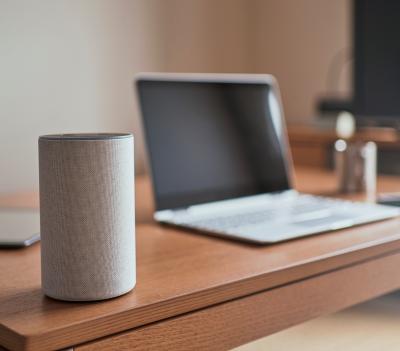 Dec 3, 2020ET CIO
Dec 3, 2020ET CIOVoice technology was already on the rise in India before the pandemic. But the virus ― and the subsequent need for both human-injected and contactless experiences ― served to increase both its pace and popularity.
-
 Nov 25, 2020Marketing Magazine
Nov 25, 2020Marketing MagazineThe pandemic has put the pedal to the metal when it comes to digital adoption and innovations in customer experience (CX). Four senior leaders consider what emerging CX trends will be more relevant than ever in 2021. From voice technology to agile measurement strategies – what’s next for CX?
-
 Nov 24, 2020UK Tech News
Nov 24, 2020UK Tech NewsBlack Friday is an immovable event – occurring at the same time of year, every year. With each iteration, we see more customer demand as more shoppers clock onto the best deals they can get in time for Christmas. And usually, we see more people flocking to the high street to get them.
-
 Nov 23, 2020The Global Governance Project
Nov 23, 2020The Global Governance ProjectOur working lives have long been open to disruption from tech and other external forces, but the arrival of COVID-19 has shifted the world of work at a rate of change that few could have predicted – and has raised urgent questions about how employment will adapt.
-
 Nov 23, 2020Forbes
Nov 23, 2020ForbesIt’s been almost one year since the Covid-19 pandemic started. Data scientists worldwide have been analyzing data gathered during the pandemic to inform policies.
-
 Nov 18, 2020ITProPortal
Nov 18, 2020ITProPortalThe disruption of the UK’s traditional grocery and supermarket scene by online providers looks to be accelerating, with Amazon now offering free grocery delivery to millions of customers in a massive expansion of the company's fresh food service.
-
 Nov 17, 2020Science & Enterprise
Nov 17, 2020Science & EnterpriseA new challenge from XPRIZRE seeks evidence-based models using artificial intelligence to help governments reopen their economies during the pandemic. The accelerated crowdsourced competition has a total prize purse of $500,000, with the first deadline for team registration set for 8 December 2020.
-
 Nov 17, 2020engadget
Nov 17, 2020engadgetThe XPRIZE Pandemic Response Challenge seeks ways to safely reopen societies amidst a pandemic.
-
 Nov 17, 2020Times of India
Nov 17, 2020Times of IndiaXPRIZE, an organization that creates competitions to solve humanitarian challenges, launched the Pandemic Response Challenge on Tuesday in partnership with Cognizant.
-
 Nov 16, 2020Hospitality Technology
Nov 16, 2020Hospitality Technology“Hotels use legacy systems for their back-office operations and it often limits the efficiencies they can achieve,” says Cognizant’s Vice President of Travel and Hospitality Joseph Rajadurai.
-
 Nov 10, 2020Money FM 89.3
Nov 10, 2020Money FM 89.3Cognizant’s recent ‘From Eyes to Ears: Getting Your Brand Heard in the New Age of Voice’ report says that brands not paying attention to voice could already be losing out on millions yearly. And while the vast majority of companies agree that voice will become essential to their success, only 20 percent have a formal voice strategy in place.
-
 Nov 9, 2020BW Businessworld
Nov 9, 2020BW BusinessworldTechnology has become central to keeping people connected during extended periods of forced social isolation. Whenever people get back to their routines in the physical world, it will merely be an effort to catch up, not be free from the virtual world.
-
 Nov 7, 2020The Economic Times
Nov 7, 2020The Economic TimesThere's a new way to borrow at the checkout counter, and it's finding favour with shoppers on a tight budget. Termed "buy now, pay later" (BNPL), these interest-free, short-term payment plans have captured a sizeable audience in credit-starved, cash-strapped millennials and Gen Zs.
-
 Nov 6, 2020The Journal of mHealth
Nov 6, 2020The Journal of mHealthCOVID-19 has upended life as we know it. The potential effect of this viral disease on mortality and public health, as well as the lasting socioeconomic repercussions of the crisis, is still unfathomable.
-
 Nov 5, 2020Financial Express
Nov 5, 2020Financial ExpressWhen we look back at the Covid-19 pandemic, one of the unsung victims of the devastating virus is the touchscreen. While the virus made us wary of unhygienic surfaces, the lockdown and social isolation revived our interest in interacting with a human-sounding voice, catalysing the large-scale shift towards the voice interface.
-
 Nov 4, 2020TechRadar Pro
Nov 4, 2020TechRadar ProFor some years now, drone technology has been billed as the next big thing. For many, the associations that spring to mind when thinking about the technology are their uses in military defense, surveillance, awe-inspiring landscape photography, and wedding videos.
-
 Nov 4, 2020Which-50
Nov 4, 2020Which-50Businesses are bullish on the future of voice technology like Amazon, Apple and Google's digital assistants, with consumers relying on the contactless tools more than ever during the pandemic, according to a study by professional services company Cognizant. Exclusive local data shared with Which-50 from Cognizant’s Centre for the Future of Work shows Australian brands lead the region in voice strategy but still face privacy and skills challenges.
-
Nov 2, 2020Mint
Nasdaq-listed Cognizant Technology Solutions Corp. is strengthening its leadership team with a mix of internal promotions and external hires in a bid to return to growth.
-
 Oct 30, 2020Economic Times
Oct 30, 2020Economic Times"We are pleased that we are entering Q4 executing increased promotions, and we are accruing bonuses at substantially higher levels than last year," said CEO Brian Humphries.
-
 Oct 30, 2020Times of India
Oct 30, 2020Times of IndiaBrian Humphries took over as the CEO of Cognizant in April 2019 and announced a ‘fit for growth’ program, which involved cost-cutting initiatives and exiting non-core areas. He tells TOI that Cognizant is on its course to become industry bellwether again.
-
 Oct 30, 2020Mint
Oct 30, 2020MintCognizant Technology Solutions Corp. on Thursday posted a 30% year-on-year decline in net profit to $348 million for the quarter ended September on high acquisition-related costs and a one-time tax of about $140 million.
-
 Oct 29, 2020Outook India
Oct 29, 2020Outook IndiaIT major Cognizant reported about 30 per cent drop in September quarter net income at USD 348 million (around Rs 2,578.3 crore), but said it is witnessing strong momentum in its digital business and bookings.
-
 Oct 28, 2020AusBiz
Oct 28, 2020AusBizIn the current reality, taking a step back and looking at the big picture can be daunting. The way we work has fundamentally changed and digital transformation efforts have been supercharged out of necessity.
-
 Oct 23, 2020Morning Brew
Oct 23, 2020Morning BrewTurns out COVID hasn’t just changed the way we work—it’s also thrown a wrench into the machinations of our future robot overlords.
-
Oct 22, 2020DM Radio Podcast
Awareness! That’s what today’s data-driven organizations want. Whether for opportunities or threats, just knowing what’s happening can make all the difference, especially when the latency is near zero.
-
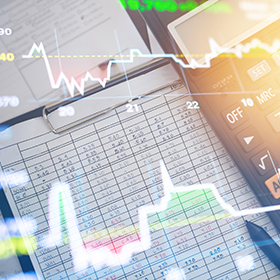 Oct 22, 2020BAI Banking Strategies
Oct 22, 2020BAI Banking StrategiesThe first phase of the Paycheck Protection Program (PPP) has wrapped up and the numbers are impressive: more than 5 million loans totaling $525 billion from nearly 5,500 lenders. Any bank that participated will attest that the data processing headaches were just as notable.
-
 Oct 22, 2020IT Pro
Oct 22, 2020IT ProFrom preventative maintenance on white goods to smart mirrors in clothes stores, the IoT is ready to change customer relationships.
-
 Oct 21, 2020New Indian Express
Oct 21, 2020New Indian ExpressThis spending is fuelled by high expectations since they aim to drive six per cent of their revenue through voice during this period, it added.
-
 Oct 21, 2020Axios
Oct 21, 2020AxiosMany of the digital jobs of the future have suffered during the later stages of the pandemic, while in-person health care jobs are on the rise.
-
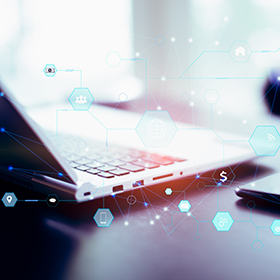 Oct 20, 2020The Hindu Business Line
Oct 20, 2020The Hindu Business LineIndian companies plan to spend 2.6 per cent of revenues on building voice capability to drive stronger growth in the next five years. They have high expectations for returns as they are aiming to drive 6 per cent of their revenue through voice during the same period.
-
 Oct 20, 2020The Economic Times
Oct 20, 2020The Economic TimesIndian companies plan to spend 2.6% of their revenues on building voice capabilities in the next five years, a Cognizant survey revealed on Tuesday. This investment strategy is fueled by high expectations for returns, as they are aiming to drive 6% of their revenue through voice during the same period.
-
 Oct 16, 2020CNBCTV18.com
Oct 16, 2020CNBCTV18.comWith consumers prioritising safety, brands should focus on creating a diverse landscape of online and offline touchpoints.
